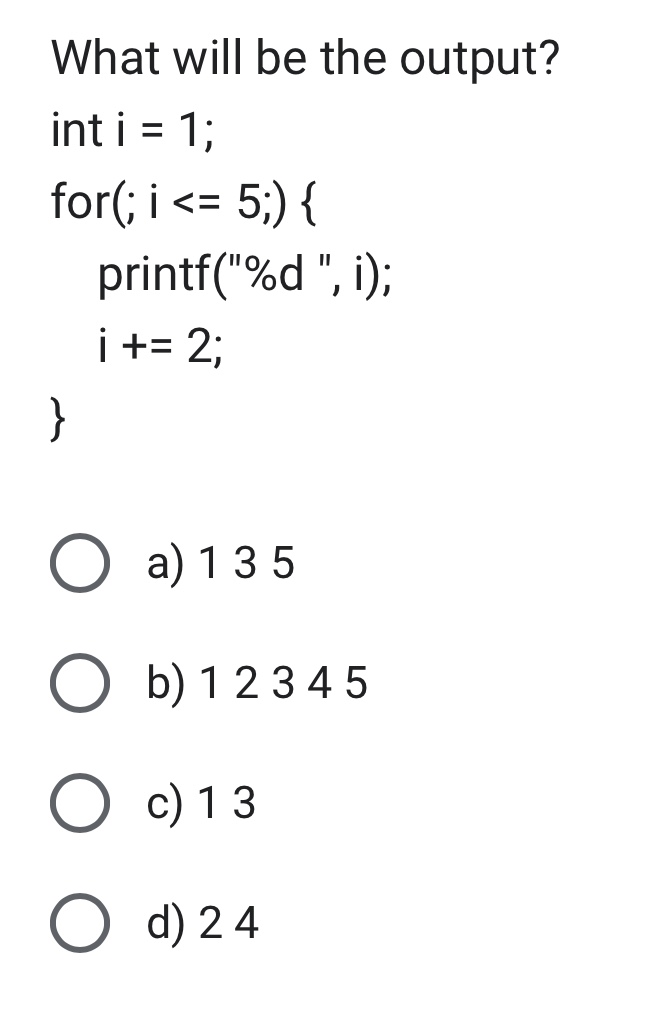What will be the output? int i = 1; for(; i <= 5;) { printf("%d ", i); i += 2; }

Understand the Problem
The question asks what the output of a specific C code snippet will be, which involves understanding how the for loop behaves and how the variable 'i' is modified within that loop.
Answer
The output is `1 3 5`.
Answer for screen readers
The output will be 1 3 5.
Steps to Solve
-
Initialize the variable
The variable
iis initialized to1:
int i = 1;
-
Understand the loop condition The loop is written as
for(; i <= 5;). Since there is no initialization or increment expression in the loop, the only action that modifiesiis inside the loop body. -
First iteration of the loop During the first iteration, the condition
i <= 5is checked. Sinceiis currently1, it enters the loop and executes:
printf("%d ", i); // outputs: 1
Then, i is updated to 3 using i += 2;.
-
Second iteration of the loop
In the second iteration,
iis now3. The condition is again checked:
printf("%d ", i); // outputs: 3
Then, i is updated to 5 using i += 2;.
-
Third iteration of the loop
In the third iteration,
iis now5. The condition is checked:
printf("%d ", i); // outputs: 5
Then, i is updated to 7 using i += 2;.
-
End of loop
Now
iis7, which is greater than5. The loop terminates as the conditioni <= 5is no longer true.
The output will be 1 3 5.
More Information
In the given C code snippet, the loop increments i by 2 on each iteration starting from 1, leading to the printed output of the values 1, 3, and 5 before the loop stops when i exceeds 5.
Tips
- Forgetting to update the loop condition could lead to an infinite loop. In this case, as a no-increment loop structure is employed safely with manual increments.
AI-generated content may contain errors. Please verify critical information